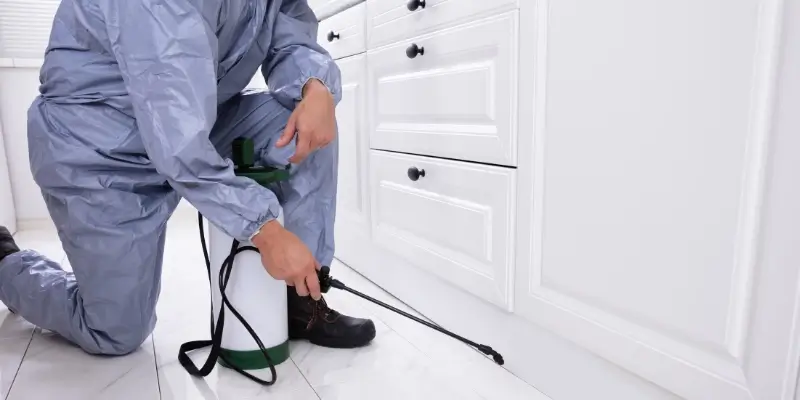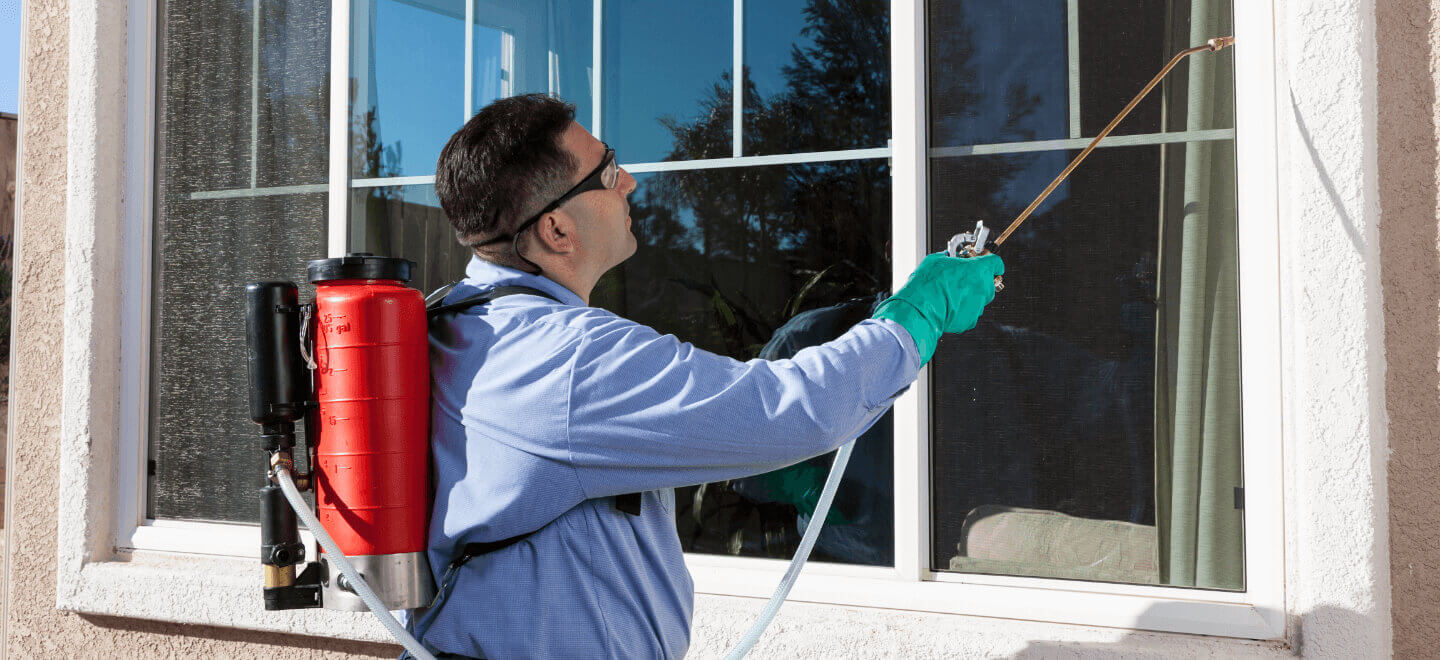Reliable Pest Control Coquitlam BC: Your Local Experts in Pest Management
Reliable Pest Control Coquitlam BC: Your Local Experts in Pest Management
Blog Article
Safe and Reputable Insect Control for Lasting Protection
Reliable insect administration calls for a complex strategy that stabilizes eco-friendly honesty with the requirement for efficient pest suppression. The nuances of these approaches might not be quickly clear, prompting a better assessment of the practices that can lead to lasting bug control outcomes.
Understanding Parasite Control Approaches
Parasite control includes a selection of techniques intended at managing and eliminating undesirable bugs and rodents that can endanger both wellness and property. Comprehending these approaches is critical for efficient parasite management.
The key classifications of parasite control methods consist of mechanical, biological, and chemical approaches. Mechanical techniques include physical barriers and traps to stop parasite entrance and capture unwanted types. Making use of screens on home windows or using sticky catches can considerably lower bug populaces without presenting harmful substances - exterminator coquitlam.

Chemical bug control is often one of the most recognized method, utilizing chemicals to remove bugs. These chemicals can be reliable however need to be made use of with care to prevent unfavorable impacts on non-target varieties and the setting.
Advantages of Eco-Friendly Solutions
How can eco-friendly solutions transform parasite control methods? The fostering of environment-friendly parasite control methods offers countless benefits, dramatically enhancing the performance and safety and security of insect management (exterminator coquitlam). To start with, these services utilize natural components, reducing the reliance on dangerous chemicals that can posture risks to human health and wellness and the setting. This shift not just safeguards animals and family members yet also reduces the potential for dirt and water contamination.

Another benefit is the favorable effect on regional biodiversity. Green services are created to target specific insects while preserving valuable bugs and wild animals, advertising a balanced community. This strategy straightens with the growing consumer need for lasting techniques, enhancing the online reputation of insect control service providers.
Integrated Pest Monitoring Methods
The application of environment-friendly options normally causes the adoption of Integrated Insect Monitoring (IPM) strategies, which better enhance parasite control efficiency. IPM is an alternative approach that incorporates several tactics to take care of bug populaces while minimizing environmental influence. This technique highlights the usage of biological, cultural, mechanical, and chemical controls, making sure a lasting and well balanced approach of bug administration.
One basic aspect of IPM is the thorough analysis of insect task and environmental problems. By monitoring bug populaces and recognizing their life process, experts can apply targeted treatments that disrupt the bug's habitat or lifecycle, reducing reliance on chemical pesticides. Additionally, social methods such as plant rotation and environment adjustment can substantially reduce bug establishment and recreation.
Another vital component is making use of biological control agents, such as valuable insects or bacteria, which can normally reduce bug populations. When chemical applications are necessary, IPM focuses on making use of low-risk chemicals and uses them uniquely, decreasing direct exposure to non-target organisms and people.
Including IPM techniques not just improves insect control performance yet likewise promotes a much safer environment, straightening with the growing need for sustainable practices in parasite monitoring.
Safe Practices for Property Owners
Understanding the value of secure practices in insect control can empower property owners to properly handle parasite concerns while guarding their health and the setting. Applying safe approaches and preventive steps is vital in reducing direct exposure to damaging chemicals.
Property owners need to first examine their atmosphere for conditions that attract pests, such as standing mess, water, and food waste. Routinely cleansing and securing entrance factors can prevent pests from invading the home. Using all-natural deterrents, such as essential oils or diatomaceous planet, can supply efficient options to chemical pesticides.
When chemical therapies are essential, homeowners ought to select products that are especially classified as safe for property usage. It is necessary to follow application guidelines diligently to prevent overexposure. Making use of targeted therapies in areas where pests are identified, rather than covering spraying, can considerably reduce chemical usage.
Last but not least, keeping open interaction with bug control experts is important. Home owners must ask about the security of how to control pest items utilized and request green options whenever possible. By adopting these secure practices, homeowners can develop a healthier living setting while efficiently handling parasite concerns.

Tips for Long-Term Defense
Establishing a pest monitoring method that stresses long-lasting protection can considerably improve the performance of the safe techniques formerly discussed. To accomplish this, home owners ought to execute routine examinations of their residential property, focusing on hidden locations such as attics, cellars, and crawl areas. Early discovery of parasite activity is crucial in avoiding invasions from taking hold.
These methods lower attractants that attract bugs right into the home. Sealing access points, such as splits around doors and home windows, can properly block possible pest gain access to.
Landscape design should also be considered; maintaining plants trimmed and keeping a distance between plant life and the home lessens hiding spots for parasites. Using all-natural deterrents, such as vital oils or diatomaceous planet, can better discourage infestations without considering harsh chemicals.
Finally, working together with an expert insect control service for regular examinations can give an added layer of safety and security. These specialists can supply customized suggestions and advanced therapies, guaranteeing that your home remains protected versus bugs in the long term.
Verdict
To conclude, safe and trusted bug control calls for a complex strategy that highlights environmentally friendly techniques and integrated pest management. By implementing all-natural deterrents, carrying out normal examinations, and keeping appropriate hygiene, homeowner can considerably reduce insect populations while safeguarding valuable bugs and the environment. Collaboration with expert pest control solutions boosts the efficiency of these approaches, ensuring customized services that provide long-term protection and comfort versus future her response invasions.
Effective insect monitoring needs a multifaceted approach that balances environmental honesty with the demand for efficient insect suppression. The adoption of environment-friendly parasite control approaches provides various benefits, substantially boosting the performance and security of pest administration.The execution of environmentally friendly solutions normally leads to the address fostering of Integrated Insect Management (IPM) methods, which better improve parasite control effectiveness. exterminator coquitlam. By keeping an eye on bug populaces and recognizing their life cycles, practitioners can execute targeted interventions that interrupt the insect's habitat or lifecycle, minimizing dependence on chemical pesticides.In conclusion, trustworthy and risk-free insect control requires a complex approach that highlights green approaches and integrated pest administration
Report this page